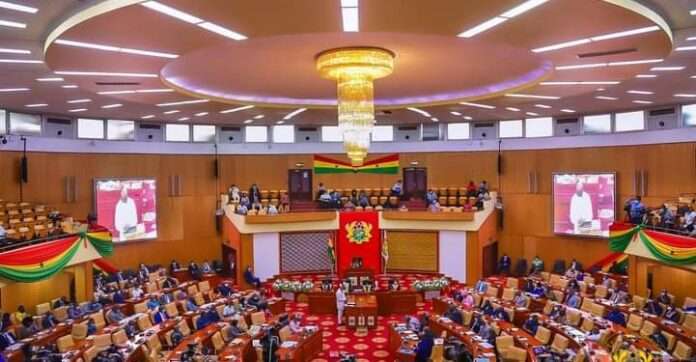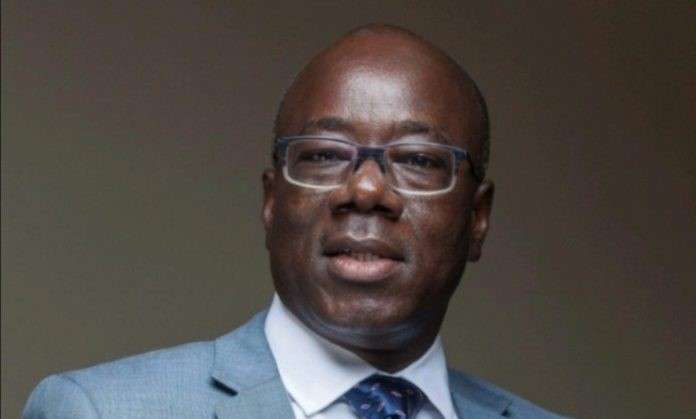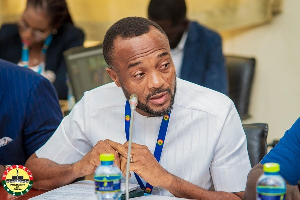Dr. Rasheed Draman, the Executive Director of the Africa Centre for Parliamentary Affairs (ACEPA), has expressed concerns over the departure of key figures, including Majority Leader Osei-Kyei-Mensah-Bonsu, from Parliament.
According to Dr. Draman, the exit of these lawmakers, who have chosen not to participate in the upcoming parliamentary primaries, will create a significant void in the legislative process.
Dr. Draman emphasized the crucial role played by experienced MPs in the intricate aspects of the lawmaking process. He noted that the departure of individuals with a deep interest and understanding of legislative details would be keenly felt in Parliament.
“If you try to research into, for instance, the lawmaking process in parliament, yes lawmaking happens at the level of the committee, but many will tell you that there are very few MPs who have developed that interest in going through the intricacies and very details of the bills when they come before the House. I can tell you from my experience and my knowledge from working with Parliament that some of these people are those exiting.”
Dr. Rasheed Draman
The New Patriotic Party (NPP) closed nominations on December 25 for parliamentary aspirants in constituencies where sitting Members of Parliament (MPs) are present. The subsequent election is scheduled for January 27, 2024. Notably, some seasoned members of the NPP voluntarily opted not to seek re-election, marking the conclusion of their parliamentary careers.

Among the prominent figures who have decided to exit are Osei Kyei-Mensah-Bonsu, Joseph Osei-Owusu, Samuel Atta Akyea, Joe Ghartey, Kennedy Agyapong, Daniel Botwe, and others who have made significant contributions during their tenures.
The departure of these experienced MPs raises questions about the potential impact on the legislative process and the dynamics within Parliament. As the NPP moves forward with the primaries and prepares for the next parliamentary term, the absence of these seasoned lawmakers may reshape the political landscape and influence the direction of legislative initiatives in the years to come.
The Impending Exodus: Parliament’s Loss as Bigwigs Depart
The upcoming parliamentary elections in Ghana are not merely about political transitions; they mark the end of an era as seasoned politicians and key figures, considered as bigwigs, bid farewell to parliamentary service. The departure of individuals such as Majority Leader Osei-Kyei-Mensah-Bonsu, Joseph Osei-Owusu, Samuel Atta Akyea, and others from the legislative arena creates a void that extends beyond political party lines, heralding a significant loss for the Ghanaian Parliament.

One of the notable figures stepping down is Osei-Kyei-Mensah-Bonsu, who has been a prominent fixture in Ghana’s legislative landscape since 1997. His departure is not just the end of a long parliamentary career but also the exit of a seasoned leader who has played a pivotal role in shaping legislative discourse and policy decisions. As Majority Leader, Osei-Kyei-Mensah-Bonsu’s influence extended far beyond his constituency, making his absence felt across the entire parliamentary spectrum.
Similarly, Joseph Osei-Owusu, who has served since 2009, has been a stalwart in parliamentary affairs. His contributions, particularly in his role as Deputy Majority Leader, have been instrumental in guiding the legislative process. Samuel Atta Akyea, with his parliamentary tenure since 2009, brought legal expertise and a nuanced understanding of legislative intricacies, contributing significantly to debates and policy formulation.
The departure of these bigwigs raises concerns about the institutional memory and wealth of experience that Parliament stands to lose. These individuals have not only been lawmakers but also mentors, guiding newer members and sharing their insights to foster a better understanding of parliamentary processes. The intricacies of lawmaking, committee deliberations, and the navigation of complex bills are areas where their absence will be profoundly felt.
Beyond the political party affiliations, the departure of seasoned figures poses challenges to the continuity of effective governance. Their roles extended beyond the partisan lines, and their absence may impact the balance and quality of debates within Parliament. The loss of institutional knowledge and the depth of experience that comes with years of service may affect the efficiency of legislative processes.
As the New Patriotic Party (NPP) prepares for the upcoming parliamentary primaries and elections, the bigwigs who have chosen not to seek re-election leave a legacy that will be challenging to replace. The next generation of leaders will have the responsibility of filling the shoes of these seasoned lawmakers, and the transition is bound to reshape the dynamics within Parliament.
READ ALSO: Ghana’s Exchange Rate Stability: A Deeper Look At Economic Rebound





















